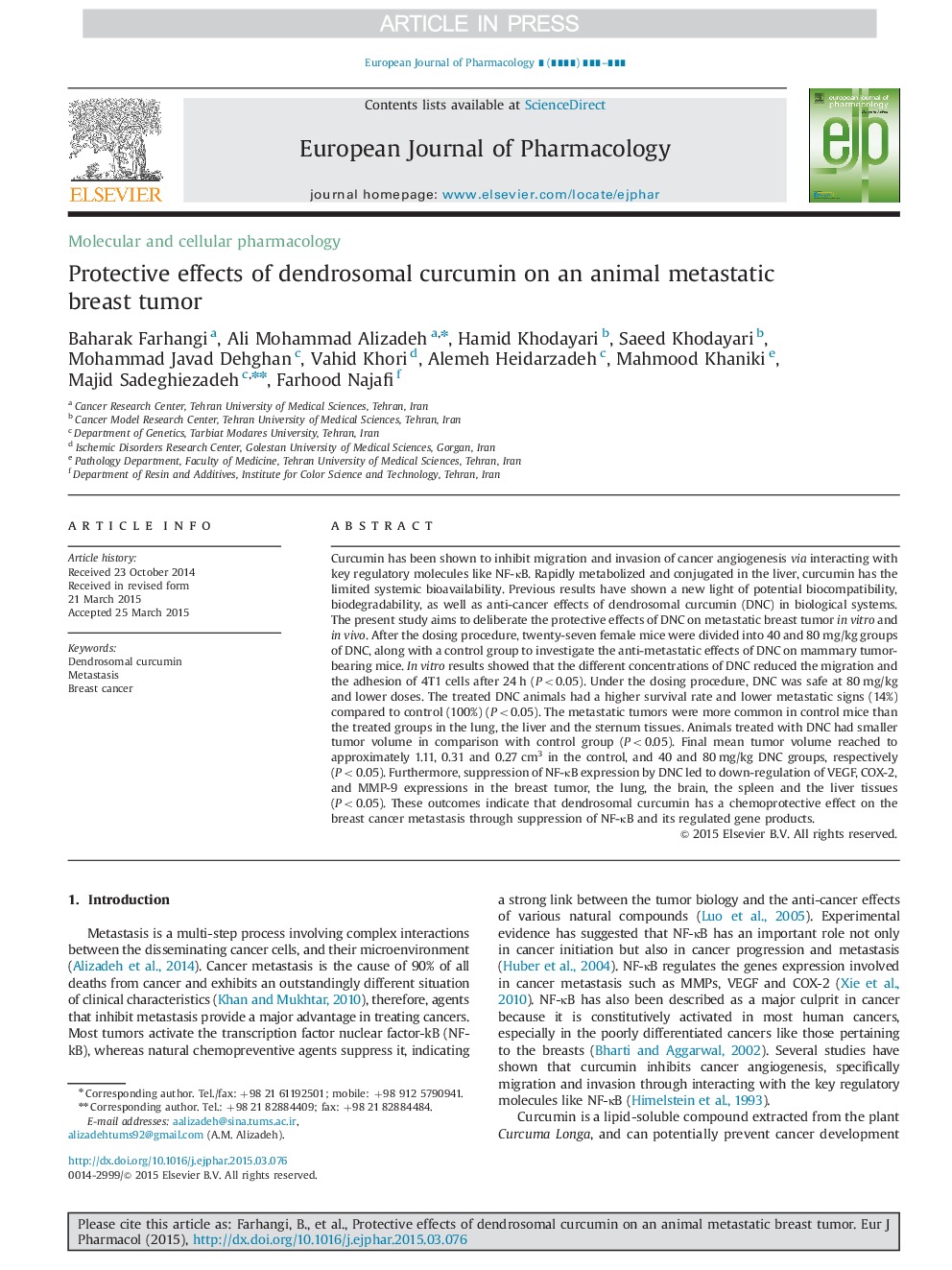| Article ID | Journal | Published Year | Pages | File Type |
|---|---|---|---|---|
| 5827350 | European Journal of Pharmacology | 2015 | 9 Pages |
Abstract
Curcumin has been shown to inhibit migration and invasion of cancer angiogenesis via interacting with key regulatory molecules like NF-κB. Rapidly metabolized and conjugated in the liver, curcumin has the limited systemic bioavailability. Previous results have shown a new light of potential biocompatibility, biodegradability, as well as anti-cancer effects of dendrosomal curcumin (DNC) in biological systems. The present study aims to deliberate the protective effects of DNC on metastatic breast tumor in vitro and in vivo. After the dosing procedure, twenty-seven female mice were divided into 40 and 80 mg/kg groups of DNC, along with a control group to investigate the anti-metastatic effects of DNC on mammary tumor-bearing mice. In vitro results showed that the different concentrations of DNC reduced the migration and the adhesion of 4T1 cells after 24 h (P<0.05). Under the dosing procedure, DNC was safe at 80 mg/kg and lower doses. The treated DNC animals had a higher survival rate and lower metastatic signs (14%) compared to control (100%) (P<0.05). The metastatic tumors were more common in control mice than the treated groups in the lung, the liver and the sternum tissues. Animals treated with DNC had smaller tumor volume in comparison with control group (P<0.05). Final mean tumor volume reached to approximately 1.11, 0.31 and 0.27 cm3 in the control, and 40 and 80 mg/kg DNC groups, respectively (P<0.05). Furthermore, suppression of NF-κB expression by DNC led to down-regulation of VEGF, COX-2, and MMP-9 expressions in the breast tumor, the lung, the brain, the spleen and the liver tissues (P<0.05). These outcomes indicate that dendrosomal curcumin has a chemoprotective effect on the breast cancer metastasis through suppression of NF-κB and its regulated gene products.
Keywords
Related Topics
Life Sciences
Neuroscience
Cellular and Molecular Neuroscience
Authors
Baharak Farhangi, Ali Mohammad Alizadeh, Hamid Khodayari, Saeed Khodayari, Mohammad Javad Dehghan, Vahid Khori, Alemeh Heidarzadeh, Mahmood Khaniki, Majid Sadeghiezadeh, Farhood Najafi,
